FOR IMMEDIATE RELEASE
(SANTA CRUZ, Calif., October 21, 2021) — Organic Farming Research Foundation (OFRF) supports a recent letter delivered to House Speaker Nancy Pelosi and Senate Majority Leader Chuck Schumer that supports agricultural research in the Build Back Better Agenda. Thirty Members of Congress have signed on to this letter to leadership, requesting that the $7.75 billion investment in agricultural climate research, innovation and research infrastructure is included in the House Agriculture Committee’s portion of the budget reconciliation legislation. Approximately $3.64 billion is intended for research facilities, with a substantial portion going toward minority-serving institutions and 1890 Land-Grant Institutions. An additional $200 million would go toward funding the Organic Agriculture Research and Extension Initiative (OREI).
Organic Farming Research Foundation has worked with policy makers and allied organizations to push for legislation that ensures funding goes to organic agriculture research, and for programs that benefit organic farmers and ranchers. OFRF has worked closely with Congressman Jimmy Panetta (CA-20) to advance agricultural research and supported his letter to leadership. Earlier this month, OFRF and 130 other organizations and universities delivered a similar letter to Speaker Pelosi and Leader Schumer, requesting they make critical investments that support agricultural research and research facilities.
“Investing in research is the down payment on agriculture’s ability to advance meaningful climate solutions,” said Brise Tencer, Executive Director for OFRF. “We thank Rep. Jimmy Panetta for his continued championing of ag research, Rep. Adams, and Members of Congress who have signed on to this letter. OFRF encourages Leadership and other Members to protect and prioritize ag research investments that will sustain our communities equitably.”
The letter, released in partnership between Rep. Panetta and Rep. Alma S. Adams (NC-12) to Speaker Pelosi and Leader Schumer, suggests that “doubling agricultural research and development between 2020 and 2030 would reduce global greenhouse gas emissions by over 100 million tons,” citing a recent report from the Breakthrough Institute, a global environmental research center. The research provisions included in the House Agriculture Committee’s budget reconciliation is critical to farmers and ranchers who face climate-induced production challenges firsthand, and will help give them access to information and tools to combat the climate crisis and build resiliency.
“As American farmers have consistently dealt with numerous challenges from an erratic market and extreme weather events to the existing pandemic, American government funding for agricultural research has remained dismally flat for the past fifty years,” said Representative Jimmy Panetta. “By increasing federal funding for agriculture research and development, we can play our part by supporting farmers who not only need it but also deserve it. The letter that I wrote and led seeks to reaffirm Congress’ commitment to farmers who continue to fight climate-induced production challenges and are willing to be part of the solution.”
In addition to Rep. Panetta and Rep. Adams, other Members of Congress who signed onto the letter include: Stacey E. Plaskett, Salud Carbajal, Ro Khanna, Mark Takano, Jim Costa, Al Lawson, Eleanor Holmes Norton, Kathy Manning, Zoe Lofgren, Ann Kirkpatrick, John Garamendi, Marilyn Strickland, Peter Welch, Ann McLane Kuster, Jim Cooper, Doris Matsui, Josh Harder, Jerry McNerney, Kaiali’i Kahele, Bobby Rush, Angie Craig, Chellie Pingree, Mark Pocan, Julia Brownley, Colin Allred, Jahan Hayes, Alan Lowenthal, and Sanford D. Bishop Jr.
###
Supporting Documents
Letter to Congressional Leadership from Rep. Panetta and Rep. Adams
Letter to Congressional Leadership from OFRF and Allied Organizations
About Organic Farming Research Foundation
Organic Farming Research Foundation works to foster the improvement and widespread adoption of organic farming systems. OFRF cultivates organic research, education, and federal policies that bring more farmers and acreage into organic production.
http://www.ofrf.org/
Policy Contact
Trevor Findley, Senior Policy Associate, Organic Farming Research Foundation
trevor@ofrf.org
Media Contact
communications@ofrf.org
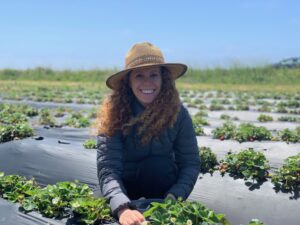 Tell us about yourself.
Tell us about yourself.


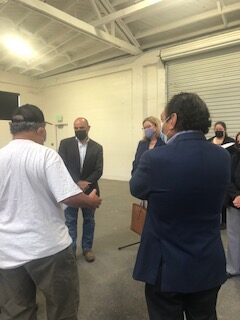
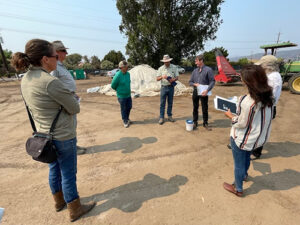 Also in August, OFRF hosted
Also in August, OFRF hosted 
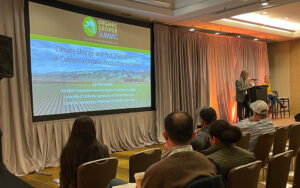
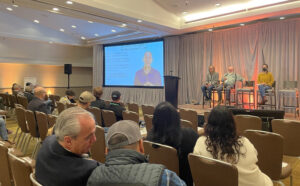
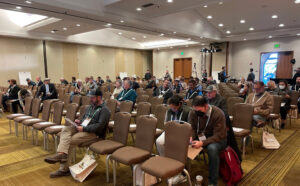
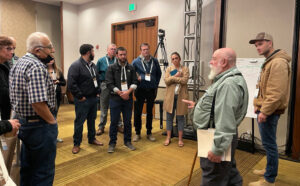
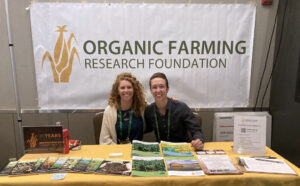


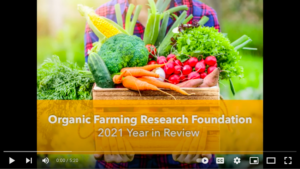
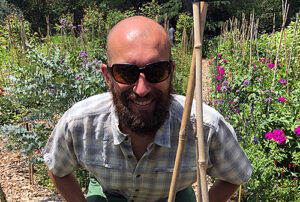 Tell us about yourself.
Tell us about yourself.

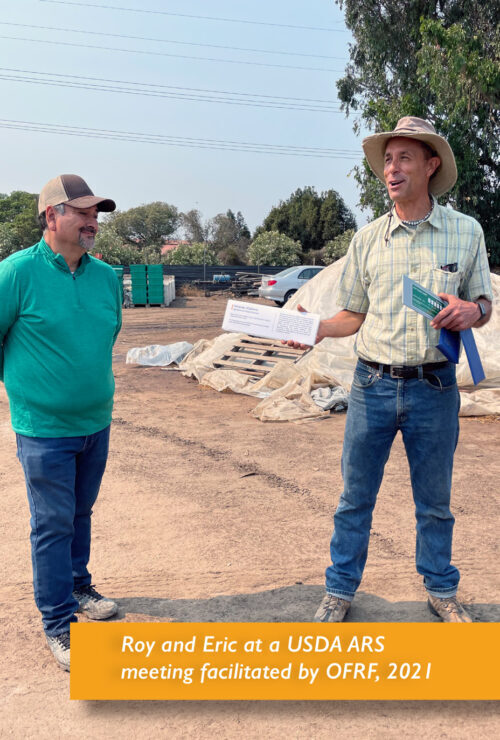 Dr. Eric Brennan, the scientist who took that role 20 years ago and continues to hold it today, was soon awarded an
Dr. Eric Brennan, the scientist who took that role 20 years ago and continues to hold it today, was soon awarded an 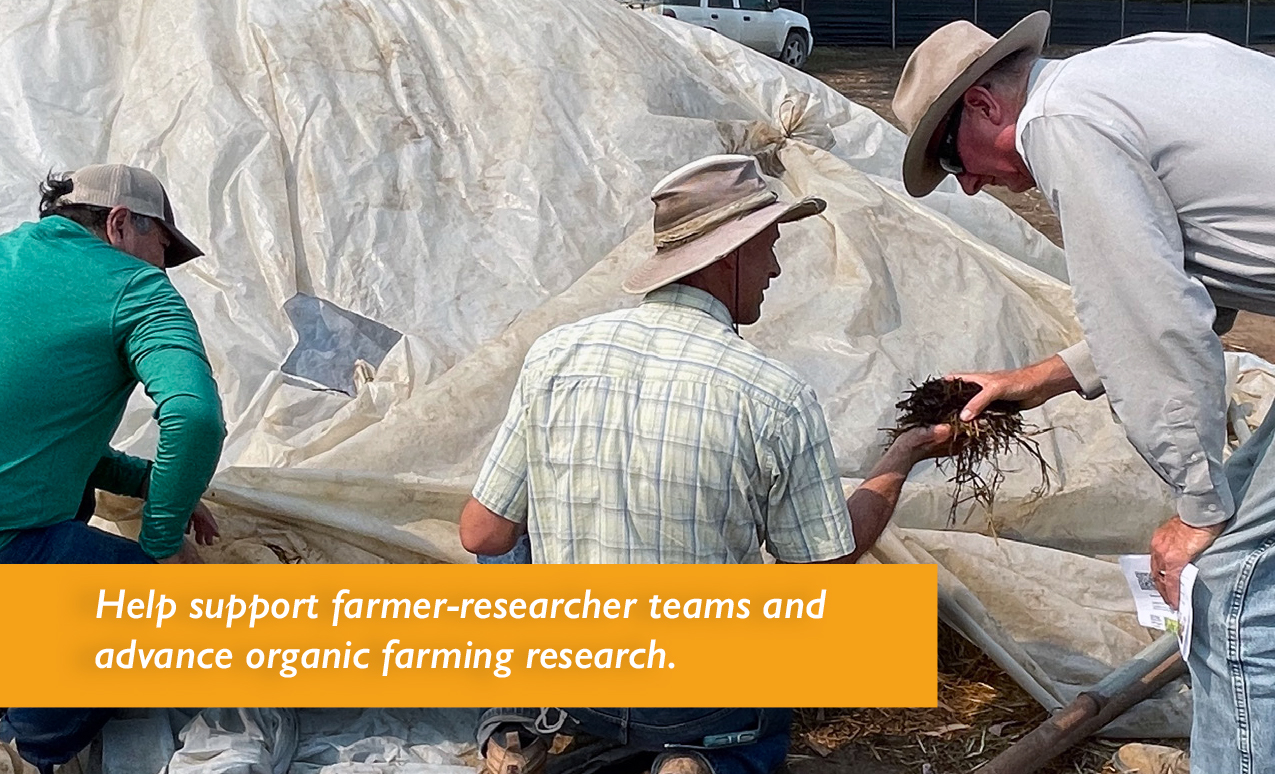 Researching organic farming systems is a collaborative effort. For nearly a decade, Eric has partnered closely with organic farmers, including Roy Fuentes, a local strawberry farmer. Roy is a second-generation farmer with a desire to improve his organic farming methods. Since Eric is the only researcher at the Salinas station without a technician, Roy’s support is critical to the success of their research and they estimate Roy and his team donate at least $120,000 of in-kind support annually to the ARS organic research program.
Researching organic farming systems is a collaborative effort. For nearly a decade, Eric has partnered closely with organic farmers, including Roy Fuentes, a local strawberry farmer. Roy is a second-generation farmer with a desire to improve his organic farming methods. Since Eric is the only researcher at the Salinas station without a technician, Roy’s support is critical to the success of their research and they estimate Roy and his team donate at least $120,000 of in-kind support annually to the ARS organic research program.